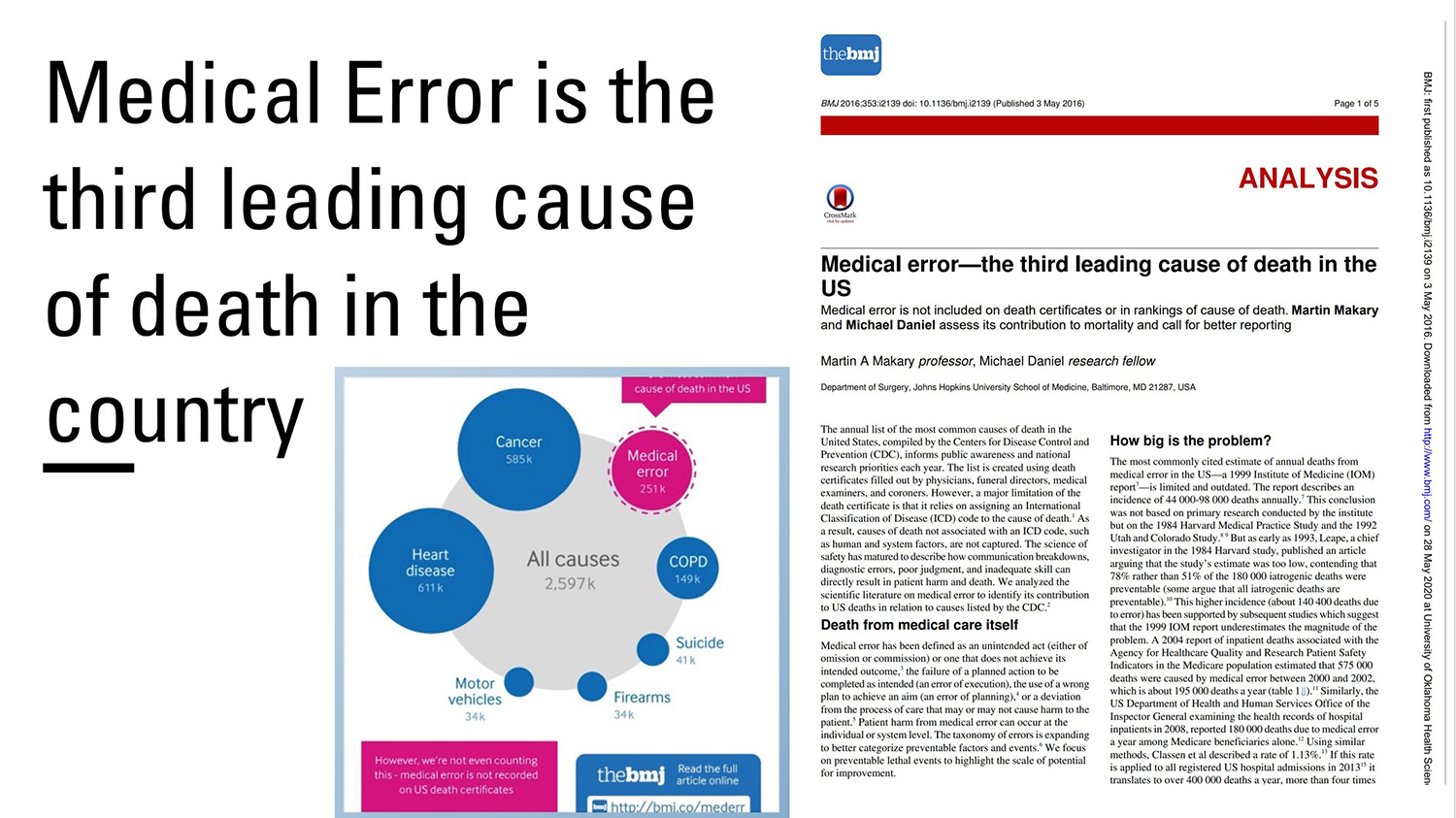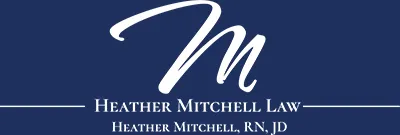Fatigue, Sleepiness and Medical Errors
Ashish K. Jha, MD
University of California, San Francisco School of Medicine
Bradford W. Duncan, MD
Stanford University School of Medicine
David W. Bates, MD, MSc
Harvard Medical School
Fatigue may contribute to the human error component of medical errors.1–3 Hospitals function around the clock, which necessitates shift work for many personnel. Physicians, especially those in training, typically work long hours and are often sleep deprived. 4 Personnel who work during evenings and at night experience disruptions in circadian rhythms, which may aggravate fatigue. Although little research has focused specifically on fatigue in hospital personnel and its relationship to medical error, studies outside the medical field demonstrate the intuitive link between fatigue and degradation in performance and suggest some safety practices that may be adopted in medicine. Although both acute and chronic fatigue may have detrimental effects on the health of medical practitioners,5–7 this chapter focuses on fatigue’s direct effects on patient safety. We review the literature on problem sleepiness among medical personnel, its impact on performance, and interventions to address sleep deprivation: limiting work hours, changes in shift scheduling, napping, and pharmaceutical aids. Although beyond the scope of this chapter, factors that contribute to fatigue beyond sleepiness, such as job stress and work load, should be considered as part of a multifaceted strategy to combat fatigue.
Fatigue and sleepiness may affect patient safety in several ways. Physicians and nurses need good attention, sound judgment, and often quick reaction time, especially in emergency situations. Whether evaluating an electrocardiogram for signs of myocardial ischemia or monitoring a patient during general anesthesia, degradation of attention, memory, or coordination may affect performance and lead to adverse events. Research suggests that sleep requirements and patterns are idiosyncratic, with wide variation across populations. In order to design interventions that will effectively decrease or prevent these events, it is important to understand the signs, prevalence, and impact of sleep deprivation and problem sleepiness.
Sleep Deprivation
Individuals differ in their optimal sleep requirements. Most sleep experts agree that adults typically need between 6 and 10 hours of sleep per 24-hour period, with most people requiring approximately 8 hours of sleep per day.8,9 When adults get less than 5 hours of sleep over a 24-hour period, peak mental abilities begin to decline. 2 For short periods of time (2-3 days), adult who get 4 hours of sleep can function reasonably well, but below peak levels. 2 However, even with sleep deprivation of just a couple of days, slower response times and decreased initiatives are observed. 10 After one night of missed sleep, cognitive performance may decrease 25% from baseline.11,12 After the second night of missed sleep, cognitive performance can fall to nearly 40% of baseline. 12
With ongoing sleep deprivation (getting 2 to 3 hours less sleep than optimal), people develop a sleep debt. 2 If the sleep debt continues over 5 to 10 days, they are rarely maximally alert and at some point general performance, and particularly cognitive performance, become verifiably worse. Sleep debt also leads to slower response times, altered mood and motivation, and reduced morale and initiative. A meta-analysis of the effect of sleep deprivation on performance by Pilcher et al found that humans who are chronically sleep deprived function at the 9th percentile of non-sleep-deprived subjects. Further, sleep deprivation affected mood more than it did cognitive function; both were more affected than motor function.
Sleep deprivation and disturbances of circadian rhythm lead to fatigue, decreased alertness, and poor performance on standardized testing. Although data from non-medical fields suggest that sleep deprivation leads to poor job performance, this link has not yet been established in medicine. Although the link with fatigue seems intuitive, promoting interventions designed to combat medical errors should be evidence-based. Limits on physician duty hours must account for potentially detrimental effects of discontinuity in patient care. Forward rather than backward shift rotation, education about good sleep hygiene, and strategic napping before or during shifts may reduce fatigue and improve performance. High face validity, low likelihood of harm, and ease of implementation make these promising strategies, although more evidence of their effectiveness in medicine is warranted. Studies on the use of bright light in the medical workplace are needed before it can be embraced.
As Gaba points out, 125 in most high-hazard industries the assumption is that fatigue and long, aberrant work hours lead to poor performance, and the burden of proof is in the hands of those who believe that such work practices are safe. In medicine, concerns over discontinuity of care, and difficulties in changing medical culture have pushed the burden of proof into the hands of those who wish to change the status quo. Given that medical personnel, like all human beings, probably function suboptimally when fatigued, efforts to reduce fatigue and sleepiness should be undertaken, and the burden of proof should be in the hands of the advocates of the current system to demonstrate that it is safe.
Finally, fatigue among medical personnel may not be fully remediable and human errors are, in the end, inevitable. The ultimate solution for health care organizations will likely require a systems-based approach that both limits the potential for human error and intercepts errors that do occur before they reach patients.
If you are looking for a Medical Malpractice Attorney in Oklahoma to assist with your case, CONTACT US for a FREE CONSULTATION.
There is NO FEE UNTIL RECOVERY.

The Consequences of Foreign Object Errors
 Foreign object errors, also known as retained foreign objects (RFOs), are a common and preventable problem in the medical industry. These errors occur when surgical instruments, sponges, or other objects are accidentally left inside a patient’s body after a surgical procedure.
Foreign object errors, also known as retained foreign objects (RFOs), are a common and preventable problem in the medical industry. These errors occur when surgical instruments, sponges, or other objects are accidentally left inside a patient’s body after a surgical procedure.
The consequences of foreign object errors can be severe, ranging from infection and inflammation to perforation of organs and even death. In addition to the physical harm caused to patients, foreign object errors can also lead to emotional distress and loss of trust in healthcare providers.
Despite the seriousness of these errors, they continue to occur at an alarming rate. According to a study by the Joint Commission, RFOs occur in approximately 1 in every 5,500 surgical procedures. This means that each year, thousands of patients are affected by this preventable error.
So, what can be done to prevent foreign object errors in the medical industry? The first step is to establish strict protocols for counting and tracking surgical instruments and other materials used during procedures. This includes implementing standardized procedures for counting and documenting the number of sponges, needles, and other objects used during surgery.
In addition, healthcare providers should be trained to identify and report any missing items immediately. This can be done by using electronic tracking systems or barcoding technology to ensure that all items are accounted for before and after a procedure.
Another important aspect of preventing foreign object errors is ensuring effective communication between healthcare providers. This includes clear communication between surgical team members and other healthcare providers, as well as effective communication with patients and their families.
Finally, it is essential to establish a culture of safety within the medical industry. This means creating an environment where healthcare providers feel comfortable reporting errors and near-misses, and where continuous improvement and learning are encouraged.
In conclusion, foreign object errors in the medical industry are a serious and preventable problem that can have devastating consequences for patients. By implementing strict protocols for counting and tracking surgical instruments, ensuring effective communication between healthcare providers, and creating a culture of safety, healthcare providers can work together to reduce the incidence of these errors and provide safer, higher-quality care for their patients. As patients, it is important to advocate for your own safety by asking questions and communicating with your healthcare team before and after a procedure.
Read more about Foreign Object Errors
If you are looking for a Medical Malpractice Attorney in Oklahoma to assist with your case, CONTACT US for a FREE CONSULTATION.
There is NO FEE UNTIL RECOVERY.

How to Prevent Medication Errors
Preventing Medication Errors
 Medication errors are a common issue in healthcare and cost billions of dollars nationwide while inflicting significant morbidity and mortality.
Medication errors are a common issue in healthcare and cost billions of dollars nationwide while inflicting significant morbidity and mortality.
While national attention has been paid to errors in medication dispensing issues, it remains a widespread problem. The best method to enhance patient safety is to develop a multi-faceted strategy for education and prevention. Emphasis should be put on healthcare providers working as a team and communicating as well as encouraging patients to be more informed about their medications. With a culture of safety, dispensing medication errors can be reduced.
Some ways to prevent medication errors
-
Always write one prescription for each medication.
-
Besides signing the prescription, always circle your name on the preprinted prescription pad.
-
Do not hesitate to check the dose and frequency if you are not sure.
-
Always consider the fact that each medication has the potential for adverse reactions.
-
Do not use drug abbreviations when writing orders.
-
Always add the patient’s age and weight to each prescription.
-
Check for liver and renal function before ordering any medication.
-
Spell out the frequency and route of dosage; do not use abbreviations.
-
Always specify the duration of therapy; do not say give out “XXX” number of pills.
-
Always be aware of high-risk medications.
-
When writing a prescription, state the condition being treated.
Source: National Library of Medicine
If you are looking for a Medical Malpractice Attorney in Oklahoma to assist with your case, CONTACT US for a FREE CONSULTATION.
There is NO FEE UNTIL RECOVERY.

Medical Error Reduction and Prevention
 Medical errors are a serious public health problem and a leading cause of death in the United States. It is challenging to uncover a consistent cause of errors and, even if found, to provide a consistent viable solution that minimizes the chances of a recurrent event. By recognizing untoward events occur, learning from them, and working toward preventing them, patient safety can be improved.
Medical errors are a serious public health problem and a leading cause of death in the United States. It is challenging to uncover a consistent cause of errors and, even if found, to provide a consistent viable solution that minimizes the chances of a recurrent event. By recognizing untoward events occur, learning from them, and working toward preventing them, patient safety can be improved.
Part of the solution is to maintain a culture that works toward recognizing safety challenges and implementing viable solutions rather than harboring a culture of blame, shame, and punishment. Healthcare organizations need to establish a culture of safety that focuses on system improvement by viewing medical errors as challenges that must be overcome. All individuals on the healthcare team must play a role in making the provision of healthcare safer for patients and healthcare workers.
All providers know medical errors create a serious public health problem that poses a substantial threat to patient safety. Yet, one of the most challenging unanswered questions is “What constitutes a medical error?” The answer to this basic question has not been clearly established. Due to unclear definitions, “medical errors” are difficult to scientifically measure. A lack of standardized nomenclature and overlapping definitions of medical errors has hindered data analysis, synthesis, and evaluation.
There are two major types of errors:
- Errors of omission occur as a result of actions not taken. Examples are not strapping a patient into a wheelchair or not stabilizing a gurney prior to patient transfer.
- Errors of the commission occur as a result of the wrong action taken. Examples include administering a medication to which a patient has a known allergy or not labeling a laboratory specimen that is subsequently ascribed to the wrong patient.
Health care professionals experience profound psychological effects such as anger, guilt, inadequacy, depression, and suicide due to real or perceived errors. The threat of impending legal action may compound these feelings. This can also lead to a loss of clinical confidence. Clinicians equate errors with failure, with a breach of public trust, and with harming patients despite their mandate to “first do no harm.”
Fear of punishment makes healthcare professionals reluctant to report errors. While they fear for patients’ safety, they also dread disciplinary action, including the fear of losing their jobs if they report an incident. Unfortunately, failing to report contributes to the likelihood of serious patient harm. Many healthcare institutions have rigid policies in place that also create an adversarial environment. This can cause staff to hesitate to report an error, minimize the problem, or even fail to document the issue. These actions or lack thereof can contribute to an evolving cycle of medical errors. When these errors come to light, they can tarnish the reputation of the healthcare institution and the workers.
Some experts hold that the term “error” is excessively negative, antagonistic and perpetuates a culture of blame. A professional whose confidence and morale has been damaged as a result of an error may work less effectively and may abandon a career in medicine. Many experts suggest the term “error” should not be used at all. Due to the negative connotation, it is prudent to limit the use of the term “error” when documenting in the public medical record. However, adverse patient outcomes may occur because of errors; to delete the term obscures the goal of preventing and managing its causes and effects.
Errors, no matter the nomenclature, typically occur from the convergence of multiple contributing factors. Public and legislative intolerance for medical errors typically illustrates a lack of understanding that some errors may not, in fact, be preventable with current technology or the resources available to the practitioner. Human factors are always a problem, and identifying errors permits improvement strategies to be undertaken. In particular, blaming or punishing individuals for errors due to systemic causes does not address the causes nor prevent a repetition of the error. The trend is for patient safety experts to focus on improving the safety of health care systems to reduce the probability of errors and mitigate their effects rather than focus on an individual’s actions. Errors represent an opportunity for constructive changes and improved education in health care delivery.
Governmental, legal, and medical institutions must work collaboratively to remove the culture of blame while retaining accountability. When this challenge is met, health care institutions will not be constrained from measuring targets for process improvement, including all errors, even with adverse outcomes.
Healthcare providers want to improve outcomes while reducing the risk of patient harm. Despite provider best efforts, medical error rates remain high with significant disability and death. Preventable medical errors contribute substantially to healthcare costs, including higher health insurance costs per person expenses. Only by health professionals working together will the cost and injury associated with medical errors be mitigated.
Source: National Library of Medicine
If you are looking for a Medical Malpractice Attorney in Oklahoma to assist with your case, CONTACT US for a FREE CONSULTATION.
There is NO FEE UNTIL RECOVERY.

Medical Malpractice Attorney Oklahoma
 Medical malpractice is a serious issue that affects many people in Oklahoma. Local Medical Malpractice Attorney Heather Mitchell can help clients in need of a medical malpractice attorney that knows how to win cases. With a proven track record, she will fight to win.
Medical malpractice is a serious issue that affects many people in Oklahoma. Local Medical Malpractice Attorney Heather Mitchell can help clients in need of a medical malpractice attorney that knows how to win cases. With a proven track record, she will fight to win.
When medical professionals make mistakes, the consequences can be devastating for patients and their families. If you or a loved one has been the victim of medical malpractice in Oklahoma, it’s important to seek the help of a qualified medical malpractice attorney. In this article, we’ll explore what medical malpractice is, how it works in Oklahoma, and how a medical malpractice attorney can help.
What is Medical Malpractice?
Medical malpractice occurs when a medical professional, such as a doctor, nurse, or hospital, causes harm to a patient by providing substandard care. This can include errors in diagnosis, treatment, or surgery, as well as failure to diagnose a condition or provide appropriate follow-up care. Medical malpractice can include diagnostic errors, medication errors, foreign object errors, radiology errors, laboratory errors and surgical errors, just to name a few. Medical malpractice can result in serious injuries, long-term disabilities, and even death.
How Does Medical Malpractice Work in Oklahoma?
In Oklahoma, medical malpractice cases are governed by Oklahoma state law. To prove medical malpractice, a plaintiff must show that the medical professional in question breached the standard of care that would be expected of a competent professional in the same field, and that this breach caused the plaintiff’s injuries.
In Oklahoma, the statute of limitations for medical malpractice cases is two years from the date of the injury, or from the date that the injury should have been discovered. There are also limits on the amount of damages that can be awarded in medical malpractice cases.
How Can a Medical Malpractice Attorney Help?
If you or a loved one has been the victim of medical malpractice in Oklahoma, Medical Malpractice Attorney Heather Mitchell can help you seek justice and compensation for your injuries. Medical malpractice cases can be complex, and require a thorough understanding of medical terminology and procedures. A qualified attorney with years of proven experience can help you navigate the legal system, gather evidence, and build a strong case on your behalf.
In addition to legal representation, a medical malpractice attorney can also provide step by step guidance throughout the legal process. Dealing with the aftermath of medical malpractice can be stressful and overwhelming, and having an experienced attorney on your side can help you feel more confident and in control.
Conclusion
Medical malpractice is a serious issue that affects many people in Oklahoma. If you or a loved one has been the victim of medical malpractice, it’s important to seek the help of a qualified medical malpractice attorney. Attorney Heather Mitchell has the the knowledge, and experience to help you seek justice and compensation for your injuries, and hold medical professionals accountable for their actions.
If you are looking for a Medical Malpractice Attorney in Oklahoma to assist with your case, CONTACT US for a FREE CONSULTATION.
There is NO FEE UNTIL RECOVERY.

Medication Error
 Source: National Library of Medicine: https://www.ncbi.nlm.nih.gov/books/NBK519065/
Source: National Library of Medicine: https://www.ncbi.nlm.nih.gov/books/NBK519065/
Rayhan A. Tariq; Rishik Vashisht; Ankur Sinha; Yevgeniya Scherbak.
Author Information and Affiliations
July 3, 2022.
Medication Error Definition
While there is no uniform definition of a medication error, The National Coordinating Council for Medication Error Reporting and Prevention defines a medication error as: “… any preventable event that may cause or lead to inappropriate medication use or patient harm while the medication is in the control of the healthcare professional, patient, or consumer. Such events may be related to professional practice, health care products, procedures, and systems, including prescribing; order communication; product labeling, packaging, and nomenclature; compounding; dispensing; distribution; administration; education; monitoring; and use.” However, there is no widely accepted uniform definition. Unfortunately, untoward medical errors and underreported medication errors result in significant morbidity and mortality.[4][3][5][6]
Medication errors can occur at many steps in patient care, from ordering the medication to the time when the patient is administered the drug. In general, medication errors usually occur at one of these points:
-
Ordering/prescribing
-
Documenting
-
Transcribing
-
Dispensing
-
Administering
-
Monitoring
Medication errors are most common at the ordering or prescribing stage. Typical errors include the healthcare provider writing the wrong medication, the wrong route or dose, or the wrong frequency. These ordering errors account for almost 50% of medication errors. Data show that nurses and pharmacists identify anywhere from 30% to 70% of medication-ordering errors. It is obvious that medication errors are a pervasive problem, but the problem is preventable in most cases.[19]
If you are looking for a Medical Malpractice Attorney in Oklahoma to assist with your case, CONTACT US for a FREE CONSULTATION.
There is NO FEE UNTIL RECOVERY.

Medication Dispensing Errors And Prevention
 Rayhan A. Tariq; Rishik Vashisht; Ankur Sinha; Yevgeniya Scherbak.
Rayhan A. Tariq; Rishik Vashisht; Ankur Sinha; Yevgeniya Scherbak.
Source: National Library of Medicine – www.ncbi.nlm.nih.gov/books/NBK519065
Last Update: July 3, 2022.
Close to 6,800 prescription medications and countless over-the-counter drugs are available in the United States. To further complicate a practitioner’s responsibility during patient care, there are thousands of health supplements, herbs, potions, and lotions used by the public regularly to treat their health problems. With the number of substances on the market, it is conceivable that mistakes can be made when practitioners prescribe or dispense drugs. Added to this is the high risk of interaction between substances.
Each year, in the United States alone, 7,000 to 9,000 people die due to a medication error. Additionally, hundreds of thousands of other patients experience but often do not report an adverse reaction or other complications related to a medication. The total cost of looking after patients with medication-associated errors exceeds $40 billion each year, with over 7 million patients affected. In addition to the monetary cost, patients experience psychological and physical pain and suffering as a result of medication errors. Finally, a major consequence of medication errors is that it leads to decreased patient satisfaction and a growing lack of trust in the healthcare system.[1][2]
The most common reasons for errors include failure to communicate drug orders, illegible handwriting, wrong drug selection chosen from a drop-down menu, confusion over similarly named drugs, confusion over similar packaging between products, or errors involving dosing units or weight. Medication errors may be due to human errors, but it often results from a flawed system with inadequate backup to detect mistakes.[3][4]
Objectives:
-
Identify the most common errors related to medications.
-
Review some of the critical points at which medication errors are most likely to occur.
-
Outline some strategies to prevent medication errors from occurring.
-
Summarize interprofessional team strategies for decreasing medication errors.
Issues of Concern
Medication errors are grouped by different taxonomies by the Joint Commission, World Health Organization, and The National Coordinating Council for Medication Error Reporting and Prevention.[20][21][22]
Some taxonomies consider the source of the error:
-
Deteriorated drug error from compromised storage
-
Drug utilization process errors from the administration, dispensing, or monitoring
-
Prescribing errors
The most common system failures include:
-
Inaccurate order transcription
-
Drug knowledge dissemination
-
Failing to obtain allergy history
-
Incomplete order checking
-
Mistakes the tracking of the medication orders
-
Poor professional communication
-
Unavailability or inaccurate patient information
The Agency for Healthcare Research and Quality, to better standardize medication reporting, developed the Common Formats, which are defined data elements collected and reported in the event of a medication error through the Patient Safety Organization Privacy Protection Center. The scope of the Common Formats encompasses all errors, including events that those that have the potential to affect the patient, near-misses, and those that have a patient effect.[23][24][25]
Full Article: https://www.ncbi.nlm.nih.gov/books/NBK519065/
If you are looking for a Medical Malpractice Attorney in Oklahoma to assist with your case, CONTACT US for a FREE CONSULTATION.
There is NO FEE UNTIL RECOVERY.

Medication Misadventure

Source: National Library of Medicine: https://www.ncbi.nlm.nih.gov/books/NBK519065/
Rayhan A. Tariq; Rishik Vashisht; Ankur Sinha; Yevgeniya Scherbak.
Author Information and Affiliations
July 3, 2022.
Medication Misadventure
A medication misadventure is an iatrogenic incident that is inherent to medication therapy. Medication misadventure includes medication errors, adverse drug reactions, and adverse drug events. It is created through omission or commission of medication administration. Medication misadventures always are undesirable and unexpected; they may or may not be independent of preexisting pathology; and might be due to human or system error, idiosyncratic, or immunologic response.[13][14][15]
Medication errors can occur at many steps in patient care, from ordering the medication to the time when the patient is administered the drug. In general, medication errors usually occur at one of these points:
-
Ordering/prescribing
-
Documenting
-
Transcribing
-
Dispensing
-
Administering
-
Monitoring
Medication errors are most common at the ordering or prescribing stage. Typical errors include the healthcare provider writing the wrong medication, the wrong route or dose, or the wrong frequency. These ordering errors account for almost 50% of medication errors. Data show that nurses and pharmacists identify anywhere from 30% to 70% of medication-ordering errors. It is obvious that medication errors are a pervasive problem, but the problem is preventable in most cases.[19]
If you are looking for a Medical Malpractice Attorney in Oklahoma to assist with your case, CONTACT US for a FREE CONSULTATION.
There is NO FEE UNTIL RECOVERY.

Causes of Medication Errors

Source: National Library of Medicine: https://www.ncbi.nlm.nih.gov/books/NBK519065/
Rayhan A. Tariq; Rishik Vashisht; Ankur Sinha; Yevgeniya Scherbak.
Author Information and Affiliations
July 3, 2022.
Causes of Medication Errors
Expired Product
Usually occurs due to improper storage of preparations resulting in deterioration or use of expired products.
Incorrect Duration
Duration errors occur when medication is received for a longer or shorter period of time than prescribed.
Incorrect Preparation
This error usually occurs with compounding or some other type of preparation before the final administration. An example is choosing the incorrect diluent to reconstitute.
Incorrect Strength
Incorrect strength may potentially occur at many points in the medication process. It usually occurs due to human error when similar bottles or syringes with the incorrect strength is selected.
Incorrect Rate
Most often occurs with medications that are given as IV push or infusions. This is particularly dangerous with many drugs and may result in significant adverse drug reactions. Examples include tachycardia due to rapid IV epinephrine or red man syndrome due to the rapid administration of vancomycin.
Incorrect Timing
In both home and institutional settings, it is challenging to be completely accurate with scheduled doses. The concern is that some medication’s absorption is significantly altered if taken with or without food. As such, it is important to adhere to scheduled times as commonly; this may lead to under or overdosing.
Incorrect Dose
This error includes overdose, underdose, and an extra dose. An incorrect dose occurs when an inappropriate or different medication dose is given other than what was ordered, errors of omission when a scheduled dose of medication is not given, and when a drug is given via an incorrect route. Errors due to incorrect routes usually occur due to unclear labeling or tubing that is adaptive to multiple connectors/lines of access. Incorrect routes often result in result in significant morbidity and mortality.[26][27][28]
Incorrect Dosage Form
This occurs when a patient receives a dosage form different than prescribed, such as immediate-release instead of extended-release.
Incorrect Patient Action
This occurs when a patient takes a medication inappropriately. Patient education is the only way to prevent this type of error.
Known Allergen
Dispensing a drug that the patient has an allergy often due to failure to communicate with the patient, inappropriate chart review, inaccurate charting, or lack of technological interface.
Known Contraindication
This occurs when medications are not vigilantly reviewed for drug-drug, drug-disease, or drug-nutrient interactions.
Pharmacist
Errors by pharmacists are usually judgmental or mechanical. Judgmental errors include failure to detect drug interactions, inadequate drug utilization review, inappropriate screening, failure to counsel the patient appropriately, and inappropriate monitoring. A mechanical error is a mistake in dispensing or preparing a prescription, such as administering an incorrect drug or dose, giving improper directions, or dispensing the incorrect dose, quantity, or strength.
The most common causes involve workload, similar drug names, interruptions, lack of support staff, insufficient time to counsel patients, and illegible handwriting.
Distractions
One of the major causes of medication errors is distraction. Nearly 75% of medication errors have been attributed to this cause. Physicians have many duties in a hospital (e.g., examining patients, ordering laboratory and imaging studies, speaking to consultants, rounding on their patients, speaking to patient family members, conversing with insurance carriers before ordering studies), and in the midst of all this, they are often asked to write drug orders and prescriptions. In the rush to be done with writing drug orders, sometimes a lapse of judgment develops, and a medication error occurs. It can happen to the best physician. Sometimes the physician may be on the phone, and a clinician may be standing with the order chart next to him or her asking for a drug order. The physician may quickly scribble in a drug order, not paying attention to the dose or frequency. It is the unscheduled events in the life of a healthcare provider such as the constant pages, attendance at meetings, and answering telephone calls that disrupt patient care. Many physicians do not acknowledge that these distractions are a problem, but in reality, these distractions are often the cause of medication errors.[29]
To minimize distractions, hospitals have introduced measures to reduce medication errors. Most hospitals are working on ways to decrease distractions to ensure that medication orders do not occur. For example, physicians are urged to order drugs at a set time after rounding on their patients; this is when they also write their daily progress notes. Other clinicians are requested not to disturb the physician at this time of the day. Also, clinicians are asked only to disrupt the physician for an emergency. Physicians are being urged to develop a structure for their patient care that is organized so that distractions are limited. While answering a page is often necessary, many hospitals recommend that physicians not answer patient calls until patient duties are completed. Additionally, healthcare institutions are now penalizing physicians who continue to have too many medication errors because of distractions; the result is a restriction in prescribing privileges.
Of course, not all distractions can be eliminated because the practice of medicine is itself unpredictable and chaotic at the best of times.
Distortions
A prevalent cause of medication errors is distortions. The majority of distortions may originate from poor writing, misunderstood symbols, the use of abbreviations, or improper translation. A significant number of healthcare providers in the United States are from foreign countries and often write orders for medications that are not even available domestically. When a practitioner questions the drug, the physician often asks the nurse or pharmacist to substitute the medication prescribed for a similar drug. This type of distortion can lead to major errors because neither the non-prescribing practitioner nor the pharmacist can substitute a drug. All hospital pharmacies have a list of medications available in the formulary, and doctors should know what is available and limit the ordering from this list.
Illegible Writing
Illegible writing has plagued both nurses and pharmacists for decades. Physicians are often in a hurry and frequently scribble down orders that are not legible; this often results in major medication mistakes. Taking shortcuts in writing drug orders is a prescription for a lawsuit. Often the practitioner or the pharmacist is not able to read the order and makes their best guess. If the drug required is a dire emergency, this also adds more risk to the patient. To eliminate such errors, most hospitals have rules that practitioners and pharmacists have to follow; if the drug order is illegible, the physician must be called and asked to rewrite the order clearly. The practitioner or the pharmacist should never guess what the drug/dose is. The bad writing by physicians has become such a major problem that the Institute of Safe Medication Practices has recommended the complete elimination of handwritten orders and prescriptions. This problem has been resolved using electronic records where everything is typed, and poor writing is no longer an issue; however, errors still can occur from writing the wrong drug, dose, or frequency.[30][31]
If you are looking for a Medical Malpractice Attorney in Oklahoma to assist with your case, CONTACT US for a FREE CONSULTATION.
There is NO FEE UNTIL RECOVERY.

Medical Error is the Third Leading Cause of Death in the Country

- Medical Error is the third leading cause of death in the US. BMJ 2016;353;2139. Medical error also causes other injuries besides death.
- Medical error is also referred to medical negligence or medical malpractice and includes errors by all healthcare providers of any type e.g. doctors, nurses, physicians assistants, medical assistants, in all healthcare settings, e.g. offices, hospitals, surgery centers, nursing homes which produces injury of any kind.
- Death certificates do not list medical error as a cause of death–the problem is much bigger then reported. And, injuries e.g. loss of limb, loss of organ function are not reported or tracked statistically at all.
- Almost all medical malpractice happens ‘behind closed doors’. Patients are sick or may be under anesthesia or medicated and frequently do not know what happened. Family members are in the waiting room or not present or simply not told what happened with their loved one. What is worse is most states including Oklahoma have laws that protect physicians and hospitals from having to disclose the truth of what happened. These laws are called peer review laws. Peer review laws create a privilege, the privilege of secrecy, so physicians and hospitals do not have to disclose to the victim or their family members what happened or the outcome of an internal investigation.
- Frequently, patients or family members have to file lawsuits just to be able to find out what happened or how it happened. Knowing this information and understanding what and how the medical error occurred is important to the victim(s) to aid in coping mentally and emotionally with what has occurred. The victims need to know.
Read more articles on Medical Errors:
The Health Care Industry Needs to Be More Honest about Medical Errors
If you are looking for a Medical Malpractice Attorney in Oklahoma to assist with your case, CONTACT US for a FREE CONSULTATION.
There is NO FEE UNTIL RECOVERY.


